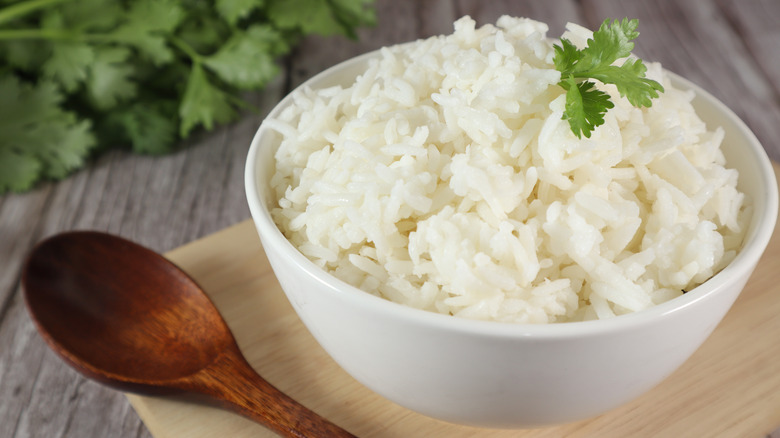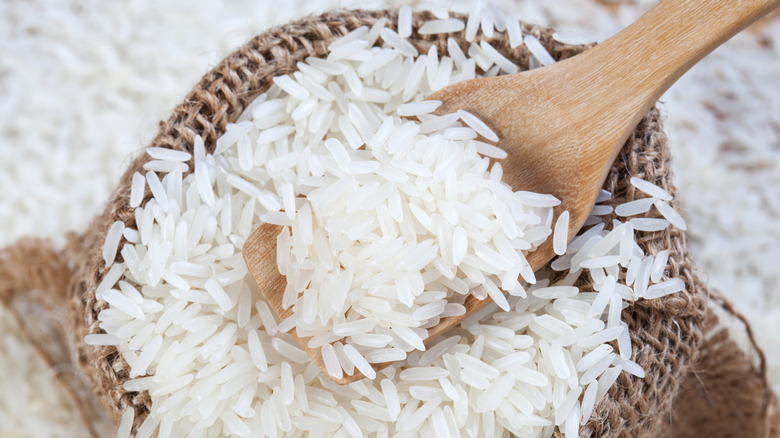You May Want To Let Rice Cool Before Eating It, According To New Study
There's good news for the leftover container of rice sitting in your fridge. A recent study found that eating reheated rice — as opposed to fresh — may be beneficial for those with type 1 diabetes.
Published in the scientific journal Nutrition & Diabetes on April 16, the study looked at 32 subjects, all of whom had been diagnosed with type 1 diabetes. Each participant was given two portions of long-grain white rice, each on separate days. One portion of rice had just been cooked, while the other had been cooled for 24 hours and reheated. Researchers at Poland's Poznan University of Medical Sciences then analyzed participants' blood sugar levels before and after each of the meals.
The study found that after eating the reheated rice, participants' blood sugar levels were more stable compared to when they ate the freshly-cooked rice. With the cooled and reheated rice, blood sugar spikes were shorter and lower overall.
How cooling rice changes it
According to the study, the act of cooling rice alters its starch content. As it cools, the amount of digestible, available carbohydrates in the rice decreases. These carbohydrates are then converted into resistant starch, which is less easily digested.
Because resistant starch is a type of fiber, it does not convert into sugar as quickly as regular starch does, explains Insider. As a result, resistant starch is less likely to cause a major blood sugar spike. Notably, rice isn't the only carbohydrate that produces resistant starch when cooled: the same process occurs with pasta and potatoes. "Resistant starch is the starch that resists digestion," registered nutritionist Rhiannon Lambert explained to the site. "It doesn't get digested in the small intestine and then goes on to ferment."
But that doesn't mean people with diabetes should immediately begin chilling their rice. The study also found that, after eating the reheated rice, patients were more at risk for hypoglycemia, or low blood sugar. Please consult your doctor before making dietary changes.

